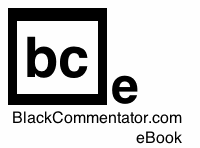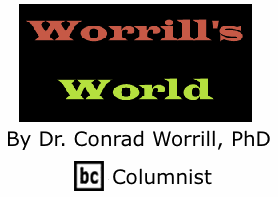|
In order for the African
Community in America
to continue our fight for self-determination and dignity, it is important that
we remind ourselves of the nature of the American dynamic. Essentially, and at
the foundation of the American-European dynamic, is the fact that it is made up
of many nations who migrated to this country and continued to fight for and
develop their national interests, inside this country. At the same time they
maintained their economic, political, cultural, linguistic, and social
relationships with their country of origin.
We can witness this
phenomenon on a daily basis by just taking a quick glance at the
national/ethnic group practices and beliefs of the Jews, Poles, Irish,
Italians, Germans, Swedes, Greeks, French, Slovakians, Czechs, etc., and how
they have consolidated their political and economic power in America. They
have all done this through their nationalistic unity on the fundamental life-giving
and life-sustaining issues that affect their interests.

In other words, they have
maintained a strong sense of where they came from, who they are, and where they
are going. This formula has been at the heart of their historical efforts to
acquire power in America.
We can observe this same trend among the Chinese, Koreans, Filipinos,
Vietnamese, Lebanese, Jordanians, and Palestinians who are the new
national/ethnic groups of America.
In fact, the Mexicans, Puerto Ricans, and other Spanish-speaking
national/ethnic groups are following this same pattern. They are fighting for
nationalism in America,
without calling it that.
When African people in America talk
about nationalism, we are often charged with being racists or anti-white.
However, the historical record demonstrates clearly that nationalism has been
the primary method by which every national/ethnic group has achieved and
maintains power.
Harold Cruse describes
this dilemma of the African Community in America, in his most profound
analysis of our movement, in his book The Crisis of the Negro Intellectual: A Historical Analysis of the Failure of Black Leadership. Cruse framed the American dynamic in this
manner when he said, “On the face of it, this dilemma rests on the fact that
America, which idealizes the rights of the individual above everything else, in
reality, a nation dominated by the social powers of groups, classes, in-groups
and cliques - both ethnic and religious.”
He goes further to
explain, “The individual in America
has few rights that are not backed up by the political, economic and social
power of one group or another.” Therefore, Cruse states, “…the individual
[Black person] has, proportionately, very few rights indeed because his ethnic
group (whether or not he actually identifies with it) has very little
political, economic or social power (beyond moral grounds) to wield.”
In our efforts to acquire
Black Power, we should remind ourselves that the Black Nationalist Tradition has always been opposed to integration,
assimilation, and accommodation as a solution to the problems of people of
African ancestry in America.
In this regard, the Black Nationalist Tradition has rejected the strategies and
tactics of appealing to the morality of white people and their white supremacy
system.
Black Nationalists have
been historically clear that people in power do not teach powerless people how
to get power. And they certainly do not give power away, even though, when
challenged, they may make some concessions.

It is so clear that every
national/ethnic group understands their political, economic, and cultural
interest. It is so natural for them to function in a nationalistic manner in
their struggle to acquire and maintain power. The African Community in America has not
fully conceptualized and reached a consensus on our nationalistic agenda. Many
of us function as if we are scared of really acting out what we really know,
for fear of being called racist. We need to stop denying our own reality.
Being called racist
because we believe in, and will fight for, the interests of our race with
undying loyalty should become the most honorable badge of courage in our
community. We should get off of this defensive “trip” when we fight for the
interests of our race and some other national/ethnic group calls us racist. We
should know by now, this is a tactic to sway us away from the path of acquiring
power.
Let’s continue our movement
“to assert our own identity, define our own purpose, to make and enforce
decisions and to move into our own national interest.” It is called
nationalism!
[Please support the upcoming CCICS Open House Wednesday, April 10th 4:00 p.m. – 7:00
p.m. and Thursday, April 11th 10:00 a.m. – 1:00 p.m.] |








